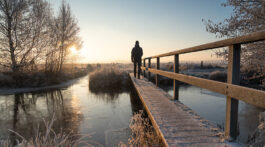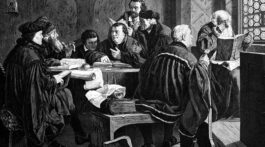Tucked away in a valley on 265 acres of a peaceful red-rock canyon near Hermosa, South Dakota, BHHEC is a place where the lives of thousands have remarkably changed. Since the founding of this nonprofit organization in 1979, individuals have come from around the world to reclaim their health and learn the secrets of sustained wellness.
As the full name implies, the center focuses on health restoration through education in various forms. Each month, the Lifestyle Center staff offer an 18-day medically supervised program addressing diseases plaguing our society, especially diabetes, heart disease and depression. Many guests come with back, hip or joint pain and inflammation. Some need oxygen and walkers. Often their blood glucose is out of control.
At the beginning of the program, guests are weighed, measured and have blood drawn so their progress can be tracked according to their personal goals. Types of treatments used to detoxify the body and boost the immune system include Russian steam bath, contrast (hot and cold) shower, Jacuzzi fever bath, Infrared sauna, liver packs, Hyperbaric chamber, Epsom salt scrub and lemon wrap (especially effective for addictions). Treatments are tailored for each guest, based on individual needs.
Close to nature
Exercise is an important part of the program, especially walking and weight training. According to BHHEC’s personal trainer, Ruth Gabbert, the combination of aerobic and anaerobic exercise is ideal in managing blood sugars. Guests who cannot walk well are taken to the Rapid City Swim Center where they can exercise in the water track. For those who are able, there are a number of beautiful trails to hike on the campus. Guests can regularly see birds flitting among the trees, deer grazing on the lawns, wildflowers by the stream in summer and fish in the deeper pools. Multiple recent studies have shown the value of contact with natural beauty in accelerating healing processes.
The plant-based meals served twice daily for guests include hearty portions of legumes and whole grains combined with fresh seasonal produce. Although BHHEC’s farming operation is currently dormant, there is a kitchen garden that provides organically grown greens and herbs. The meals—free from refined foods and additives—combined with exercise help bring blood sugar numbers under control. One recent guest happily reported that his glucose numbers dropped over 100 points during his 18-day stay at BHHEC.
Dr. John Kelly, one of BHHEC’s physicians, says, “We see changes in people’s lives that are remarkable.” These improvements are also sustainable because each guest goes home with a personalized health plan, including recipes for the first week.
Healing and helping
Staff report that if guests are committed to following the guidelines, they always see positive results, often within the first week. “I love this job because it is so thrilling to continually watch the miracle of the human body healing itself,” says Barbara Savage, a licensed massage therapist at BHHEC.
Guests who apply for the program must be well enough to care for their personal needs or bring along a caregiver. Costs can vary, based on individual needs and time of year. Calling the Lifestyle Center at the number listed below is the best way to apply.
As with many nonprofits, the staff is small but have multiple areas of expertise. BHHEC is often looking for short-term or long-term volunteers to assist with various projects. Goals for the future include reviving the farming operations and expanding educational offerings.
Massage Therapy, Plus
Started in 2007, BHHEC School of Massage is the only Seventh-day Adventist state certified massage program in the U.S. It offers a 6-month course that includes training in hydrotherapy. Graduates are qualified to sit for the national exam for massage therapy licensing. Director Al Trace is one of six instructors for the program, several of whom are adjuncts who work as professionals in their area of expertise.
The program requires 600 hours of class and clinical instruction. Graduates are prepared to work in private practice, clinics, Lifestyle Centers, and for other opportunities including mission service.
Trace says he loves teaching massage therapy because it’s a blessing to see students realize the impact they can have on people’s lives—not just physically, but emotionally and spiritually.
“It’s great to see students mature and gain experience in doing something that is so rewarding,” Trace adds. “It’s wonderful to see how in just six months you can become a talented therapist with so many options to contribute to the health and wellness of those you serve.”
Moving forward, the Black Hills School of Massage is seeking to develop an articulation agreement with an Adventist college that could lead to students obtaining an A.S. degree in Health Science with an emphasis in massage therapy.
Check out www.bhhec.org/school-of-massage/2732390 or call 605.255.4101 x23.
For more information on the programs or how you can volunteer, visit www.bhhec.org or call 605.255.4101. To watch a video about BHHEC, visit bit.ly/BHHECvideo.









